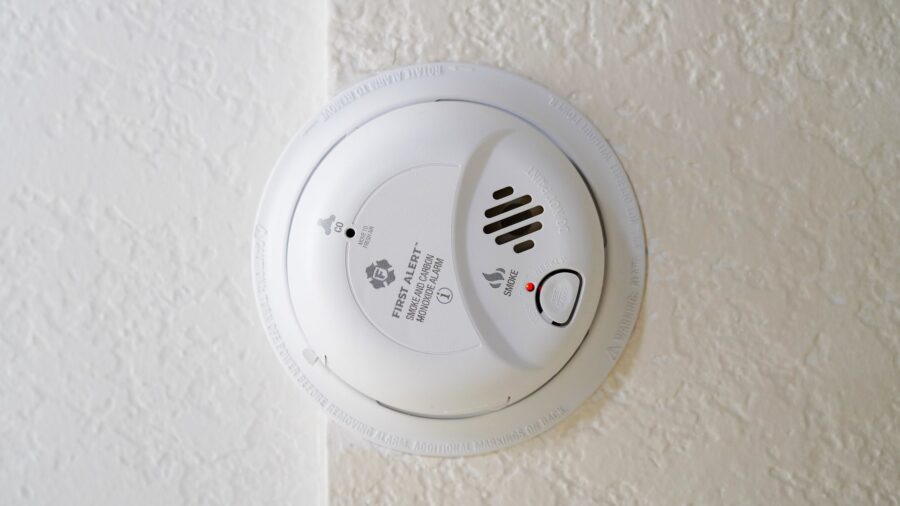If You Have These Smoke Detectors In Your House, The Government Warns They Don’t Work
Smoke detectors under the suspicious brand name BQQZHZ have been removed from Amazon after it was revealed they don't function.

Amazon may have started out as a small company in the back of Jeff Bezos’ garage, but over the past 30 years, it has grown to become the biggest retail giant in the world. While the decent prices and the two-day Amazon Prime shipping are nice perks, the fact that the online retailer has grown so vast that it now offers consumers access to more than 12 million products means that it’s nearly impossible for the conglomerate to keep track of every single item listed in its extensive catalog. According to the United States Consumer Product Safety Commission (CPSC), one such devious item under the brand name “BQQZHZ” — a $46 non-functioning smoke detector — has been removed from Amazon.
The CPSC is a federal watchdog tasked with protecting consumers, and their most recent discovery is that a particular brand of combination smoke and carbon monoxide detectors recently sold on Amazon is about as useful at alerting people that their homes are on fire as a set of dead batteries would be at turning on a flashlight. They’re entirely unhelpful, and consumers have been unwittingly buying these useless detectors for the not-so-modest price of $46 per dud.
Thankfully, it seems that Amazon has taken notice and swiftly removed any trace of this brand from its virtual shelves, which is good news for anyone currently in the market for a smoke detector, but not so great news for previous consumers who have already fallen for the scam.
In response to this debacle, Consumer Reports investigative reporter Lauren Kirchner couldn’t help but unleash a hint of sarcasm: “I’m positively shocked that a product made by the long-trusted, loyalty-inducing, stalwart brand ‘BQQZHZ’ turns out to be a dangerous piece of garbage.”
While Kirchner has a point that a smoke detector brand that seemed to have chosen its name by picking letters of the alphabet at random turned out to be phony, to be fair, in the digital day and age where everything happens online, and Artificial Intelligence seems to be taking over, a name like BQQZHZ doesn’t seem too far fetched. Does it?
Whether smoke detectors being sold from letter chop suey brand names seem a little shifty to you or not, this incident does shine a spotlight on the inherent risks that Amazon’s customers may unknowingly face. Experts have been warning for quite some time that the e-commerce behemoth has become a digital bazaar teeming with banned and unsafe products. In 2019, The Wall Street Journal conducted an investigation that revealed over 4,000 items for sale on Amazon that were either deemed unsafe, deceptively labeled, or outright banned.
In 2021, the CPSC took legal action against Amazon, seeking to prevent the sale of hazardous products by third-party sellers on its platform. Among the litany of dangerous offerings were flammable children’s pajamas, hair dryers with a penchant for electrocuting those unfortunate enough to dunk them in water (wait, isn’t that all hair dryers?), and, of course, dysfunctional smoke detectors.
Sadly, the CPSC’s authority to issue recalls itself is somewhat limited, and engaging in legal battles can be an expensive endeavor. However, it’s worth noting that public pressure has proven effective in the past.

Take, for instance, the case of Peloton in 2021. Initially, the fitness brand adamantly refused to recall its treacherous treadmills despite reports of potential dangers to children. It was only when the CPSC released a rather explicit video depicting a child being pulled underneath a Peloton that the company caved under the mounting pressure and finally issued a recall.
Here’s hoping that it doesn’t take a graphic video of a house burning down for Amazon to better vet the type of products they allow to be sold on its site from now on. However, if you recently purchased a smoke detector from a brand with a bunch of random letters for a name, you may want to consider returning it and purchasing one from a more reputable company instead.












